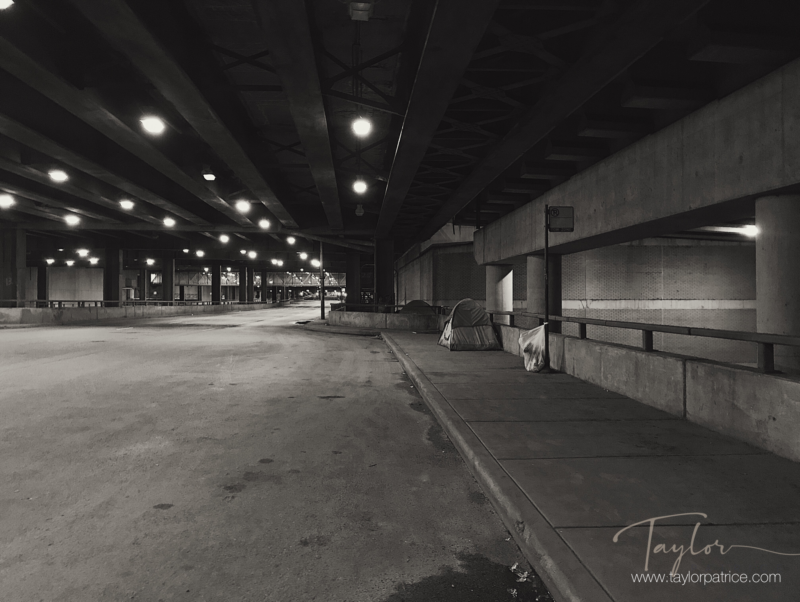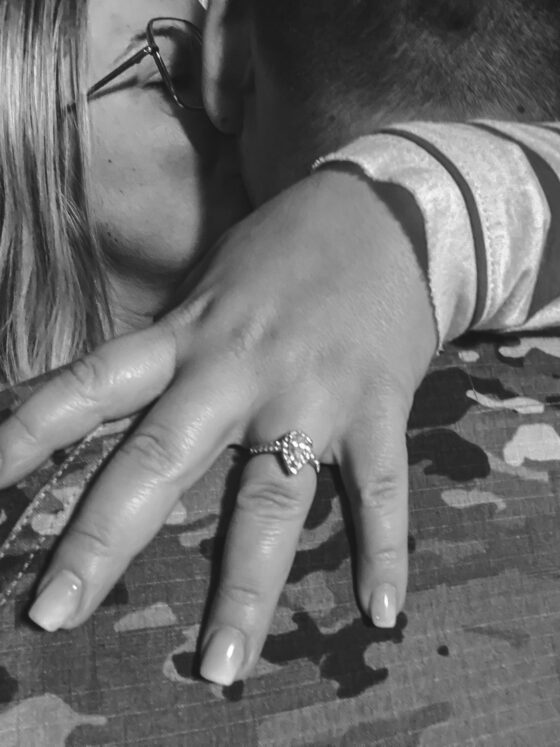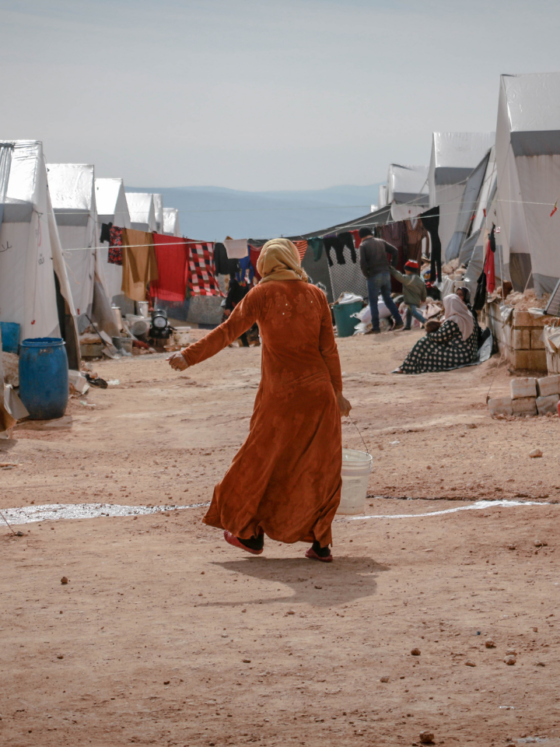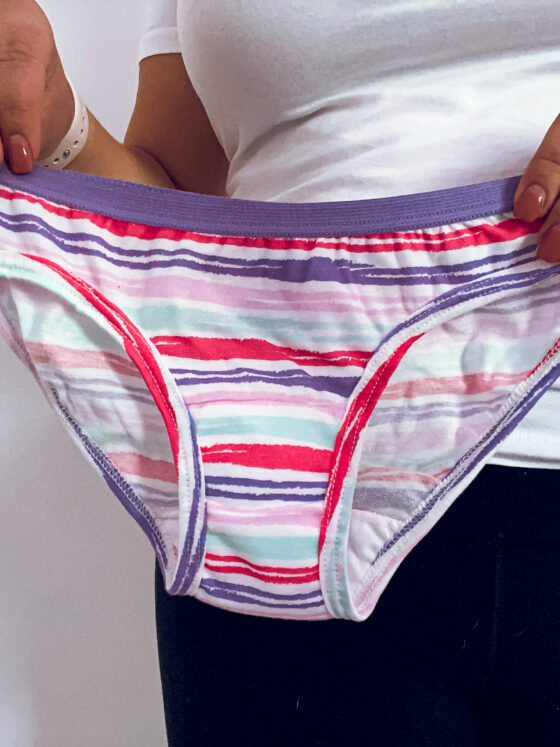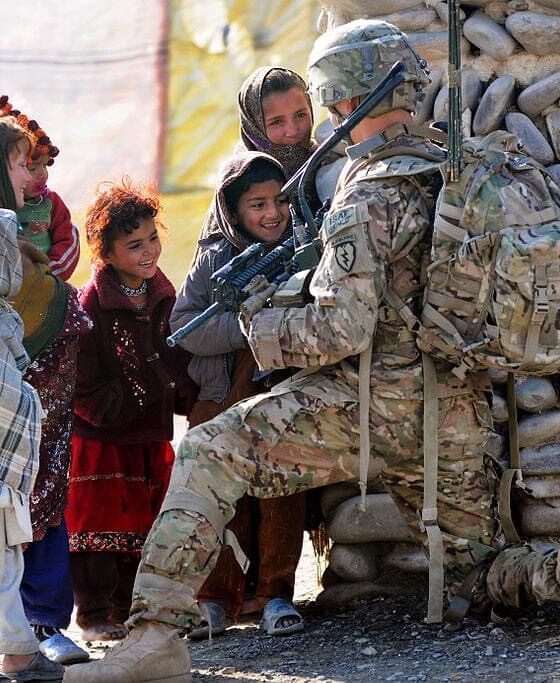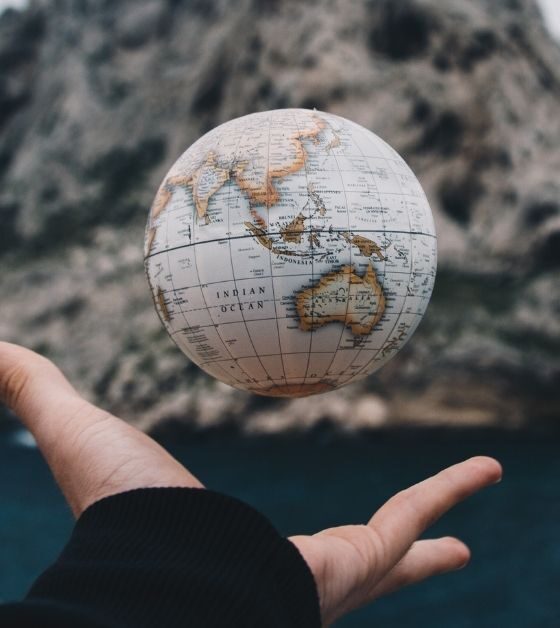Dear Reader,
I had a friend growing up that had the word “Hope” printed across a canvas book bag. ‘Hope,’ I thought to myself, ‘What does that even mean?’ To me, it seemed this small, ambiguous, almost meaningless word. Hope what? Hope for what? Put my hope in what? What is hope good for?
Flash forward to today. I work in a church that houses a non-denominational food bank. This food bank has limited funds and is intended as a last resort option for people. It’s the last stop people have before they go without power, water, or food, as it was explained to me. This food bank runs out of resources long before the end of the month, and they spend the remainder of the month giving out single bags of food, and turning people away.
In moving across the country, I have spent a lot of time observing the similarities of where I live, and a lot of time focused on the obvious differences. During one conversation with an individual who works with a local food bank, a comment was made to the degree of “This is how you have to handle the poor people around here…you have to tell them (insert comment)…it shows them their place and sets the standard.” At the time I didn’t think much of it, thinking this comment was a representation of the same mentality that stimulates some of the racial relations that still characterizes the deep south’s way of life (arguably the whole country).
But the comment stuck with me. Thinking about it, the comment had nothing to do with the distinct mentality that seems to still shapes much of the South, and everything to do with a disposition about poverty that transcends state lines. While poverty is a concern everywhere, due to harsher cold weather months and the prosperity of the area, poverty rates are not nearly as high in Washington, nor as prevalent in what a person sees day-to-day, thus the conversations are not as urgent, and the push for community involvement is not as present. To put the poverty levels in perspective for you, about 10% of Seattle area dwellers live in poverty. Where I now reside, poverty levels have hit 34%.
Though the rates of poverty are higher and there seems to be a stronger push to talk about poverty, outreach, and community intervention where I now live, our perceptions surrounding those in poverty and those accessing welfare or government assistance seems to be the same regardless of where we go. We have this stereotypical perception that most people receiving welfare in our country, or those accessing government assistance are just lazy.
The truth of the matter is, is that yeah, there are lazy people out there who just want to skimp off the system. That is never going to change. But after having worked in outreach, and after having been exposed to such high levels of serious need, I think its important that we begin to change the conversation about need and poverty.
Many of us think of poverty and alleviation like we do the old Chinese proverb that reads, “Give a man a fish and you will feed him for a day. Teach a man to fish and you will feed him for a lifetime.” There is an overwhelming mentality that believes we should give, but that giving should only be temporary and as a last resort, and that people need to get up, get going, and get a job. Even many organizations are set up to run this way; to provide temporary support and then help people fend for themselves. Honestly, I was one of the people that thought this way too for a long time. I spent a lot of years thinking hope was for the weak. Hope was for the person who spent their time wondering if someone would bring them a fish, rather than working to catch one themselves.
Its not that this proverb is wrong, it’s that it is incomplete. What this Chinese proverb, and our mentality neglects to consider, is that not everyone has access to the river. What I have learned in moving from an extremely wealthy part of the country and working a cushy job, to moving to an area with high rates of poverty, is that the parable of ‘give a man fish, teach a man to fish’ is not exhaustive. Yes you can give your neighbor a fish, and yes you can teach a willing neighbor how to fish, but this parable assumes that all people have access to the river.
Poverty is cyclical by nature. Many adults living in poverty have often lived their whole lives below the line. Living in poverty often means you are living in a neighborhood where those around you also live in poverty. This means that the children in schools located in areas of poverty do not have the same access to good teachers, books, school supplies, field trips and opportunities as their counterparts living in a more lucrative area. Students may not have regulated access to food and are more likely to have to skip meals. Studies show that during the summer months the vocabulary of children living below the poverty line diminishes, while the vocabulary of children from higher economic stratospheres increases. Children who receive a poor education are less likely to find a good paying job or attend college, and for those who are able to attend college, funding college while living below the poverty line can be extremely tough. Job opportunities are more limited in areas with high poverty levels and crime rates tend to be higher. Studies show that poverty and crime tend to be geographically concentrated- where there is poverty, there is higher rates of crime. A child will grow up to be an adult and the adult will continue this pattern of life. (Yes, there are absolutely exceptions to this scenario, this situation does not represent all outcomes.)
The cycle of poverty is incredibly hard to break. The problem with our system is that those receiving government assistance in addition to working, may have the ability to rise above the poverty line, but in rising above the poverty line, they will lose the government assistance; the government assistance in tandem with their income was what kept them above the poverty line, but in losing state support, the individual drops back below the poverty line. On and on this cycle continues.
So what do we do to fix this problem? Well, if the answer were simple, our country wouldn’t have poverty. It would be just that easy. How do we create hope with a screwed up system and an increasing gap between the rich and the poor that has led to exponential growth of those living below the poverty line?
Many children were orphaned during World War II. Hopeless, traumatized and alone, these children were hard to settle, and slept poorly during the night. In one particular refugee camp in Poland, the adults started giving the children pieces of bread to sleep with. They did this because it taught the child that they would always have something to wake up to and to hope for. If they woke up in the night lonely, they would have a gift that someone had given them showing them someone cared about them. If they woke up in the night scared, they always had something to hold. And the bread reminded them that they had something to wake up for the next day. They had eaten that day, and tomorrow they would eat again. The kids held on to that which gave them hope.
It is important in addressing hope, outreach, and changing our perceptions about poverty to understand that while we have this American notion of picking ourselves up by our bootstraps, that simply is not possible for everyone.
No, I don’t have a solution. I know that is not what you want to read. If I had a solution, I would be a politician rather than a blogger. I can tell you however, that the way to help alleviate poverty, and better yet, how to help the people living in it rather than just tackling this big, ominous and complex word, is to not only create access to the river, but to hold on to that which gives us hope and create it for others.
My proposition is to engage in one radical act of hope. You can take one of mine, or feel free to be more creative than me.
1. Stop leaving the bleeping country to help those in poverty. I know a lot of people want to get their ass on a plane to go help people in poverty in other countries. Stop it. You can do global mission work here. You do not have to leave home to affect change. Frankly, I think we would be more effective in addressing global poverty if we were able to improve our own conditions first. Now trust me, I have a very good understanding that poverty in America can still mean owning a television, cellphone, and having at least one meal a day where as people in other countries may have no food, health care, running water and may have seen a number of atrocities first hand that our country only sees as a news headline. I encourage people to get involved on a global scale and to travel and to see and change what it is like elsewhere. I am not saying don’t leave the country to do work. What I am saying is don’t wait until you leave the country to do work.
2. Read something other than this blog. I want you to read my blog, at least a little, or I wouldn’t have taken the time to write it, but I am not an authority on these issues. Don’t just read this blog and call it good. Go read something that teaches you something I can’t, and go read something that is not as biased as this blog. There is plenty information out there that is more exhaustive and more educational than this blog post. Connect with me, I would be happy to send you names of excellent professors who have written books about the complexities of our countries division of power and money.
3. Donate Books. According to David Bornstein, a writer for the NY Times, in some of the poorest parts of the nation, there will be a single children’s book to every 300 kids. Some of the nations poorest families are unable to afford children’s books, significantly stunting students reading abilities and long term education. Knowledge and access to resources is what gives the powerful, power. Lack-there-of is what makes a person vulnerable. Empower a kid; give them a book.
4. Use your skills. I have worked as a consultant with several non-profits and what I can say about all of them is that they all need help. What they lack in corporate funding, they make up for in man-power. There are plenty of organizations to get involved with that can use someone with your skill set. My skills are in writing and research, so I volunteer grant write for a number of organizations. My partner is an engineer, strong, and has to much energy to sit still, so my partner chooses to help build homes. Maybe physical labor is not for you, but that doesn’t mean you can’t help.
5. Stop being afraid of dirty. Lets be real for a sec. Sometimes people living in poverty are sick or dirty or smelly. Don’t be a high and mighty judgmental asshole just because you have a shower every day. Our job is to care for others without stopping to wonder if they are worth it, regardless if they are dirty, sick or other. Your immune system and Dove bar can take it.
6. Give a little. Overused word right? But seriously, one in four children in the US lives in poverty. These kids know well what it is like to live without. So give a little; but stop giving the canned food that is closing in on its expiration date that you didn’t want to eat. These kids need diapers, and underwear, and crayons, and something healthy to eat.
7. Vote. Don’t worry, I have been guilty too of not wanting to get my ass off the couch to vote because I thought it was pointless, but to change the cycle of poverty you need to be the voice for the children in poverty who cannot currently make decisions that will affect the climate they have to affect and work against when they are adults. Separately, don’t complain about the political climate if you aren’t going to try to change it.
8. Stay informed. I know that by the end of the day, most of us have had a long one and we just want to turn on the tv to forget about the things that were hard about the day, and the things we don’t know how to solve in the world, but thats making shit worse. Pay attention to your surroundings.
9. Be a mindful purchaser, and a mindful disposer. I could write a whole article on this, but to keep it short, what you do matters. What you do affects those around you. We are not as independent as we would like to think. That shirt you are wearing – The materials were harvested by someone, the fabric was made by another someone, the garment was constructed by another person, the item was then handled by another individual, and finally it was sold to you by a sales clerk. And thats only your shirt. I fully believe we are deeply dependent on one another. Likewise, the companies you purchase from (clothing, food, etc.) maintain certain company policies and working conditions. Some companies are positively influential in the community while others are extortionists. Where you buy from does affect our economy, and who is exploited in the community. This same concept applies for how you dispose of old things.
10. Move. Desirable neighborhoods attract money, schools, better living conditions and safety. Poorer neighborhoods are often inhabited by people with lower incomes, thus, the schools aren’t as good, the jobs are not as available and there tends to be higher rates of crime. So why in the world would I tell you to move away from a desirable neighborhood, into a poorer area? Well for two reasons. The first is that, wealthier neighborhoods tend to be predominately white, while lower income neighborhoods tend to be predominately black or hispanic. By moving we help to breech not only the racial status quo, but also help to bring money into poorer area. The second is because money, high incomes and low incomes, tend to be geographically centralized. If there is never a shift in where the money exists, if it is not geographically dispersed, poverty will never end….I never said these solutions would be fun, easy, or comfortable…I just said they would help…a lot.
11. Change the way you think. Whether you feel positively or negatively about poverty, and the people affected by it, we wont get anywhere unless we start rethinking those who are affected by poverty, and how to create access to the river for those who do not have it. We can do nothing for those who do not have access to help.
12. Sleep with bread. Hold on to that which gives you hope. Act on that. Be motivated by that. Radiate that outwards. Ideas like diseases spread. Spread hope. Realize that what you do and what you say are important. Act like what you do is important and it does make a difference, because it does. If you can’t change it, no one can; and if you don’t get up, neither will anyone else. Be a story of love and grace and devotion and empowerment; those are some of the most influential qualities, and stories filled with that are the best stories to tell.
Love & Light,
Taylor
